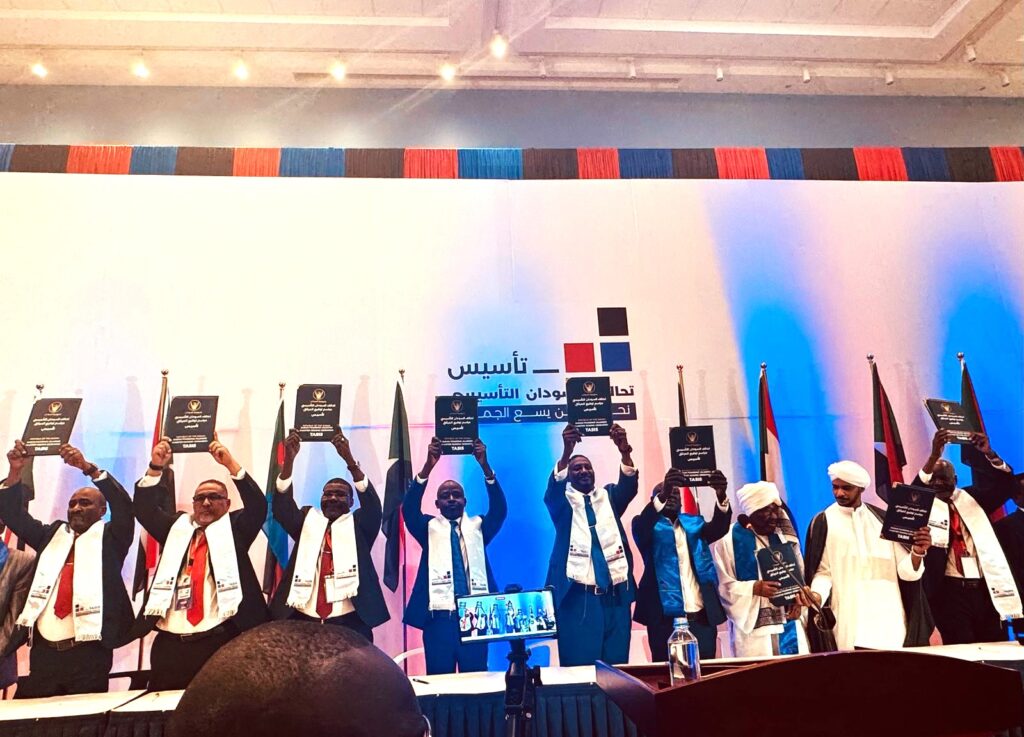
In a significant political development, Sudan’s Rapid Support Forces (RSF) and allied movements, including political and armed groups, have signed a charter to establish a government of peace and unity. The signing ceremony took place late Saturday in Nairobi, with signatories al-Hadi Idris and Ibrahim al-Mirghani confirming the development to journalists.
Among the key figures endorsing the charter is Abdelaziz al-Hilu, a formidable rebel leader who controls extensive territories and military forces in South Kordofan state. Al-Hilu has long advocated for a secular Sudan, making his participation a noteworthy aspect of the agreement.
The signatories emphasized that the charter seeks to create a fresh political trajectory, one that fosters stability and ultimately ends the ongoing war. The agreement follows extensive consultations and multiple postponements, culminating in a consensus among various political and civil factions, armed groups, and the RSF to form a new government. This administration, expected to be officially unveiled in the coming days, will consist of three governing structures: a Sovereignty Council, a Council of Ministers, and a legislative body representing all sectors of Sudanese society.
The charter explicitly states that the new government does not aim to divide Sudan but to unify it and bring an end to the conflict—tasks it claims the army-aligned government in Port Sudan has failed to accomplish.
General Mohamed Hamdan Dagalo, leader of the RSF, has been at the center of controversy, with his forces accused of human rights abuses, including genocide. Earlier this year, the U.S. imposed sanctions on Dagalo. Once a key power broker in Sudan, Dagalo had previously shared authority with the Sudanese army and civilian politicians following the ouster of former President Omar al-Bashir in 2019. However, a 2021 coup saw the army and RSF consolidate power, only for conflict to erupt over the integration of their forces into a unified national military.
The ongoing war has plunged Sudan into a dire humanitarian crisis, with nearly half of the population facing acute food insecurity and famine in multiple regions. Nonetheless, RSF supporters view the new charter as a turning point for Sudan’s recovery and growth.
Kenya has drawn attention for hosting the RSF-led discussions in Nairobi. On Wednesday, the Kenyan government defended its decision, stating that facilitating dialogue among conflicting parties aligns with its longstanding commitment to African peace mediation.
Musalia Mudavadi, Kenya’s Prime Cabinet Secretary and Cabinet Secretary for Foreign and Diaspora Affairs, dismissed claims that Kenya had violated Sudan’s sovereignty, asserting that the country remains neutral and is offering a platform for peacebuilding. He referenced Kenya’s successful mediation efforts in the 2002 Machakos Protocol, which contributed to ending Sudan’s second civil war.
“When Kenya offers this space, it is without any ulterior motives,” Mudavadi said, emphasizing the country’s dedication to regional stability through partnerships with the African Union (AU) and the Intergovernmental Authority on Development (IGAD).
Kenya’s involvement has, however, sparked diplomatic tensions. Sudan’s government, which has accused the United Arab Emirates of financially and militarily supporting the RSF—allegations the UAE denies—issued a statement condemning Kenya’s decision to host the talks. Sudan claimed that Kenya’s actions were “tantamount to an act of hostility,” particularly as they coincided with the RSF’s imminent announcement of a parallel government.
As the RSF and its allies consolidate their political vision in Nairobi, RSF Deputy Commander Abdel-Rahim Hamdan Dagalo has stated that a major announcement regarding Sudan’s transitional governance will be made by Friday. The movement’s draft constitution, which outlines the framework for a transitional government, has reportedly secured broad support from various stakeholders.
“Rapid Support Forces (RSF) and Sudanese civilian groups’ tabling of a roadmap and proposed leadership in Nairobi is compatible with Kenya’s role in peace negotiation,” Mudavadi affirmed. “We continue to offer a non-partisan space for conflicting parties to find common ground, and Kenya stands in solidarity with the Sudanese people as they determine their future governance through inclusive discussions.”
The unfolding political landscape in Sudan remains volatile, with international observers closely monitoring the RSF-led initiative. Whether this new charter will indeed pave the way for lasting peace remains to be seen, but for now, it represents a significant attempt to reshape Sudan’s future governance.
